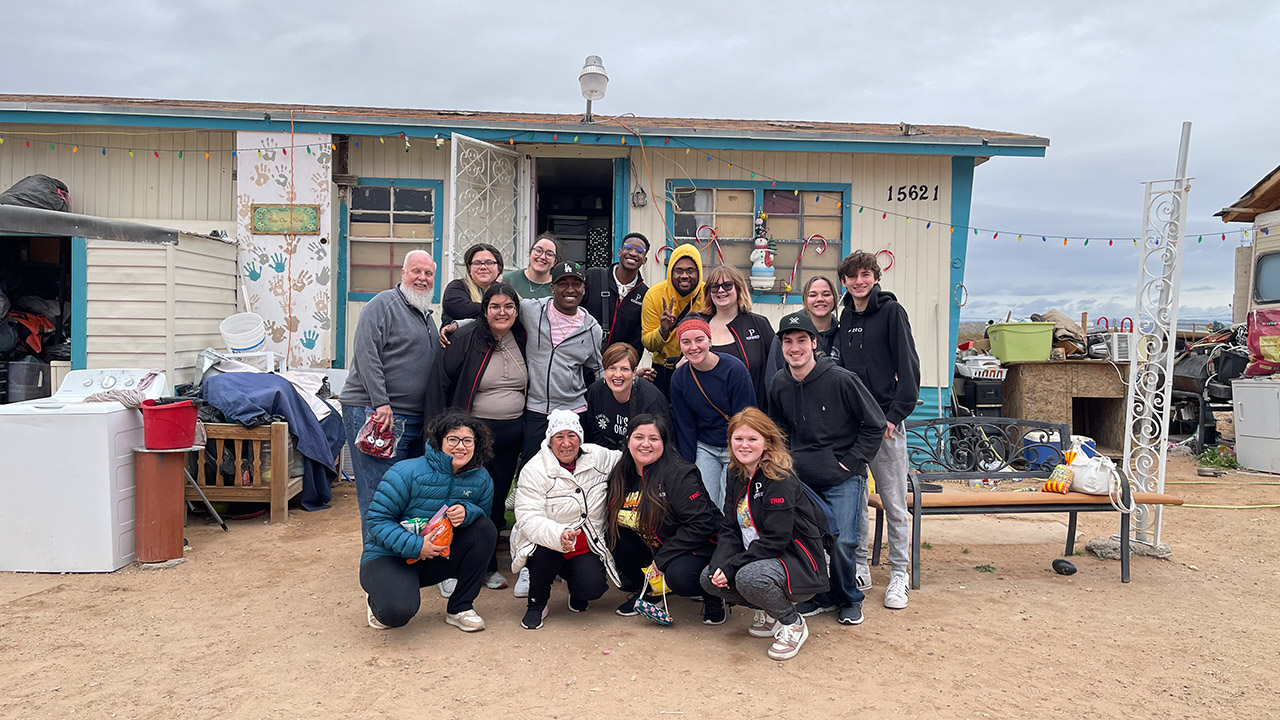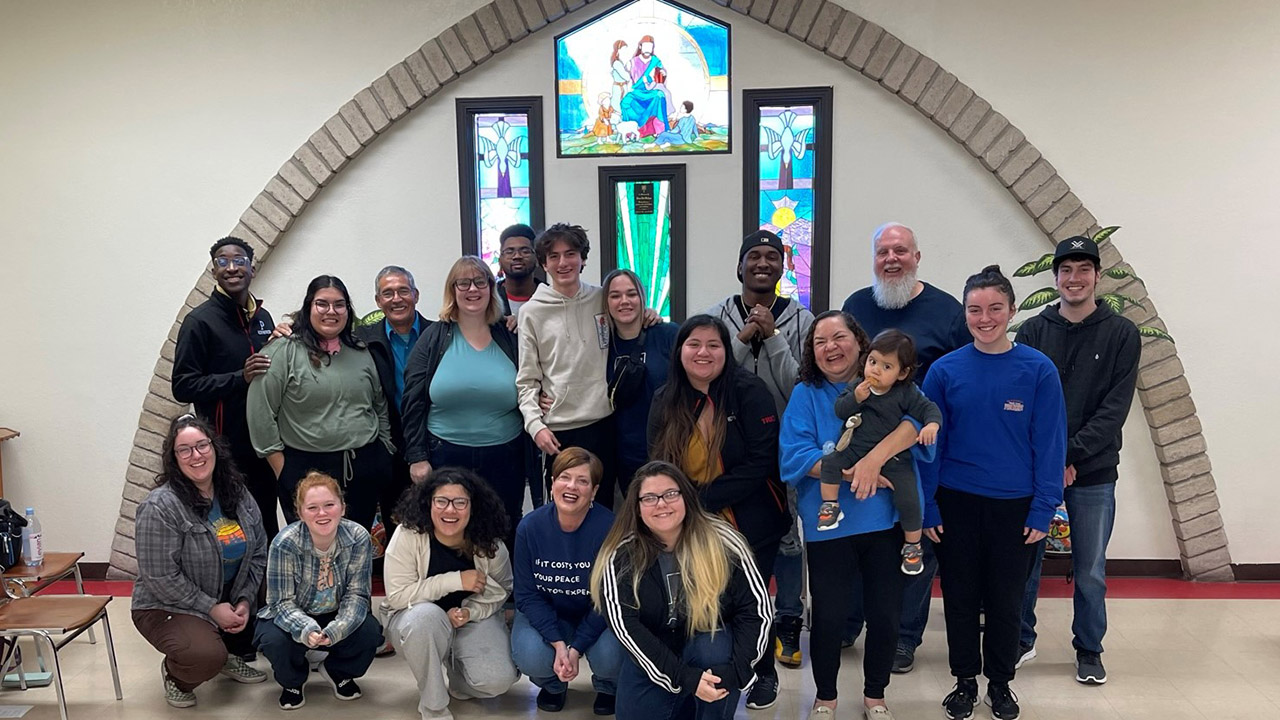

More than a dozen University of Wisconsin-Platteville students traveled to the U.S.-Mexico border in January to participate in the TRIO, Student Support Services Border Immersion Trip to El Paso, Texas. Throughout the trip, students met with refugees, lawyers, federal agencies and nonprofit organizations to learn more about immigration policies and the legal system. The students described their 10-day trip as impactful while gaining new perspectives.
“This trip was so much more than I ever could have hoped for. We heard stories about kids being away from their parents, we met the kindest children in the world and we got to see more love than I thought we would,” explained Jeri Korth, a senior forensic investigation major from Keshena, Wisconsin. “I hope the strength these parents have is the strength I find for my daughter. It was beyond emotional for me, because they are making the ultimate sacrifice for their children – I am now more motivated than I ever have been because of this trip.”
Iglesia Luterana Cristo Rey, a church in El Paso, hosted the group, where they met with different guests who shared their immigration and refugee experiences. The students also traveled to New Mexico to tour and volunteer at the Border Servant Corps Hospitality Center. Grace Semaan, a senior from Duluth, Minnesota, acknowledged how the focal point of her discussions were about families taking the risk to create a better life.
“Many people were working jobs, educated, graduated from college and they still aren’t making enough money to live. They are facing violent circumstances in their home countries,” said Semaan, a chemistry and forensic investigation double major. “We heard too many stories of people’s families and friends who have been deported; they’re just gone. To live in that fear of not knowing what the next hour, day or month is going to look like.”
“One of my biggest takeaways was understanding the sacrifices people make for the American dream and the idea of it. No one sees the path to get there,” added Asalia Diaz Ortega, a senior industrial engineering major from Darlington, Wisconsin. “I come from a Mexican household. I have family members who have experienced the journey to the U.S.”
This was Trey Rimmer’s second time participating in the Border Immersion Trip, he also attended the 2020 trip. He said having these educational opportunities builds humility.
“The first time around, I leaned how hard the [immigration] process is,” said Rimmer, a senior computer science major, from Milwaukee, Wisconsin. “I didn’t think it could get any harder than that, but I learned even once a person finds a sponsor, that doesn’t guarantee much. If you lose that sponsor, you’re starting from scratch. It can take anywhere from that five year wait period forward.”
The students emphasized the importance of having these undergraduate experiences, of seeing first-hand what’s happening at the border. They said it was beneficial to talk to Border Patrol members and to sit in on court room hearings in Las Cruces, New Mexico.
“It was a cultural experience everyone needs to have,” said Diaz Ortega. “Living in the north, it’s so different. We have the Canadian border, but no one puts the same stigma about protecting the border here.”
Semaan added, “It was learning about Border Patrol and what ICE does. We spoke to a judge to learn about the legal side and an immigration lawyer. The lawyer discussed procedures and how we can make change. It was a lot of interactions and hearing different stories, but they all had similar themes; humanity-based discussions.”
As the students reflect on their powerful trip, they said it’s now their responsibility to spread awareness.
“We have to call things out when it pertains to the border that we now know are incorrect,” said Rimmer. “Ignorance can’t always be helped. Once you know better, you do better. Now that we have these experiences and knowledge, it actively puts us in a place to do so.”